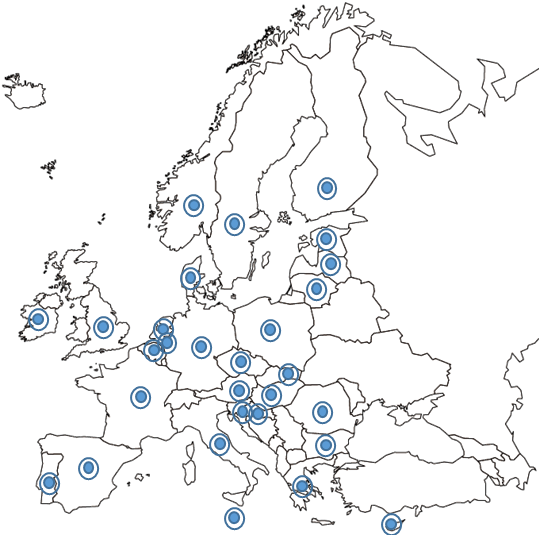End Users
Bomb factories are usually exposed through criminal intelligence gathered by police or other security agencies. The searches are then conducted by expert bomb technicians and scene investigators. Occasionally, the bomb factories are discovered accidentally by the uniformed police or rescue service (public safety authorities, ambulance personnel or fire brigades). This typically happens if the policemen or rescue service are entering premises for reasons other than checking for illicit use of chemicals. Reasons for entering houses or facilities by the uniformed police are various but a common factor here is that coming across a clandestine laboratory is not expected. Likewise, there are various reasons for the members of the rescue services to enter premises. This happens typically in the line of their routine cases. In case of fires or accidents the rescue service is usually the first authority to be present at the site. Here also, the coming across a clandestine laboratory (A clandestine laboratory or ‘clan lab’ is any site associated with the process of attempting to manufacture illicit substances like drugs and explosives) is unexpected.
Since it is most likely that members of the police in most Member States carry mobile communication devices (smart phones, tablets etc.), an electronic guide in form of a software app will best serve the intended purposes. The electronic platform enables easy updating as well as a two-way communication with the experts. The latter is a feature no other guide could provide at the moment. More experienced groups may also benefit from using the app. All the necessary information will be structured to facilitate the identification of a place or crime scene as a clandestine laboratory. Additionally, it will provide knowledge on personal protection, safe handling of chemicals and securing the place or crime scene.
Furthermore, the app would serve as a tool to raise awareness to Regulation 98/2013 within police forces and rescue services.
The project will establish a Network of National Contact Points (NCP). The tasks of the NCP are:
- To facilitate the distribution of XClanLab
- To enable targeted end users
- To facilitate a feedback flow
- To support translation and national adaptation (products etc.)
- To appoint experts in each member state
The aim is to connect at least 10 NCPs to the project and translate the app to 7 official EU languages.
